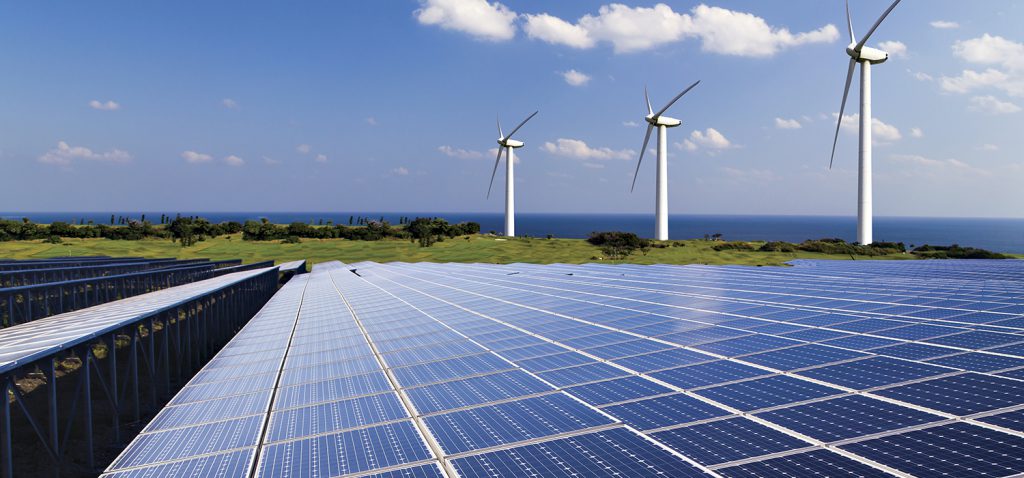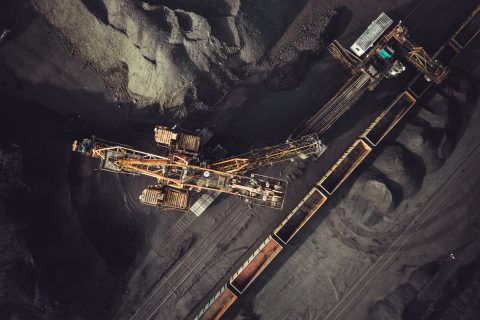SA Mining
Coming Clean
With the global drive to clean energy gaining momentum, SA Mining recently caught up with South African-listed alternative energy company Renergen’s CEO Stefano Marani for an understanding of how growing the clean energy agenda translates into growing the economy.
How challenged is power availability currently, and what are the negative impacts?
In terms of our project, we have a comprehensive power solution with significant redundancy. The first point of power is the grid directly from Eskom. We have also gone to market for the supply of a solar/battery/gas co-generation plant to supplement the grid. The final layer of redundancy is diesel backup generators. With the correct planning, power instability can be effectively managed. Established businesses that built their operations prior to the first signs of load shedding are in a far more precarious position, as now they need to develop redundancy out of budget, and this is going to cost the economy overall. Getting to grips with the power problem is critical for the government if it truly wants to see economic growth. It is a very simple equation. If a company must spend money buying expensive equipment to operate in emergencies, it pays less dividends to shareholders, mainly pension funds. These pension funds are the country’s citizens’ store of wealth. Less dividends means less wealth, and this hurts all of us.
How is the clean energy sector scheduled to grow?
Of the number of projects awarded in terms of the Renewable Energy Independent Power Producer (REIPP) programme, quite a few projects are still to be commissioned. This means that as it stands the actual amount of green power feeding into the grid is certainly less than has been awarded to date. As these projects reach completion this percentage will increase. Broadly speaking, the programme was seen as being quite successful, and should be encouraged, but this is a political issue which requires decision makers to take a view on how to prioritise issues ranging from job losses and creation versus meeting greenhouse gas targets.
How attractive is the clean energy sector to investors?
The mindset is changing quite rapidly. Take for example the recent Standard Bank AGM – this is not only happening in SA but is also a global trend, with the Church of England having announced a divestiture from fossil fuel development. With carbon tax having just been introduced in SA, not only investors but customers alike are starting to plan to ensure their businesses remain sustainable. There is a growing pool of investors willing to sacrifice some returns over cleaning up the environment, and this should be encouraged by governments through simple techniques such as tax incentives.
Do you think clean energy producers are coming to the table fast enough?
“No” is the short answer. The situation in South Africa is however complex, with many competing interests. People reliant on jobs in the traditional fossil fuels will be less sympathetic to climate change, and have the ability to influence government in a way counterproductive to reducing our carbon footprint. Changing this situation will require a new approach to integrating green energy and phasing out fossil fuels.
Are there sufficient incentives from government to drive the development/progression of clean energy solutions?
They exist, but more could certainly be done. In Germany for instance, the power utility committed to buying solar energy from residential homes at a tariff higher than power from the grid, which allowed local banks to fund the installations without it impacting the power utility’s ability to borrow. In a short space of time Germany managed to reduce its carbon footprint significantly. In South Africa we have a tendency of over-regulating everything. The National Energy Regulator of South Africa (NERSA) is now going to give itself the additional administrative burden of attempting to regulate residential solar panels. The motivation for this move is unclear – whether it was a move to protect Eskom, which is beginning to look like it is entering a classic “Utility Death Spiral”, or whether there are other motivations.
Are there any lessons that South Africa can take from other countries in driving the clean energy agenda?
Definitely. And apart from the example of Germany, Denmark has made incredible strides with wind energy, and Costa Rica is proactively transforming its carbon footprint. Even China, as the largest emitter, is rapidly changing its carbon footprint for the better. It is not impossible, but it takes political will, which is in short supply when bellies aren’t being fed. Before we can as a nation truly reduce our carbon footprint, we need to grow the economy and reduce unemployment.
How significant is Renergen’s product offering to the South African economy?
As a percentage of the diesel supply to the logistics market, it would be around 0.8%, which is very small. The project is however significant as it is a proof of concept for the country and will hopefully change the mindset towards being greener.
How big is the natural gas market and what is the potential to grow this market?
Gas can be substituted into most areas where energy is required. The whole gas sector is a very big opportunity, but faces significant obstacles, making it difficult to enter the market.
Anything more you would like to tell readers?
A final thought on growing the economy in the hope that someone reads this idea and runs with it. Investing R1-million into a small business will create significantly more jobs than investing R1m into an ALSI 40 company. Applying this logic, incentives should be created to redirect pension funds from investing in the biggest companies to investing in the smallest companies. The quickest and simplest way to achieve this is to replicate the good work done with Section 12J companies. Allow asset managers to create special investment vehicles who are capital gains tax-exempt if they only invest in companies with a market capitalisation of R2-billion or less. The capital gains tax foregone by the South African Revenue Service would be very small in comparison to the additional tax generated by the growth of these small businesses.







 Sign-up and receive the Business Media MAGS newsletter OR SA Mining newsletter straight to your inbox.
Sign-up and receive the Business Media MAGS newsletter OR SA Mining newsletter straight to your inbox.